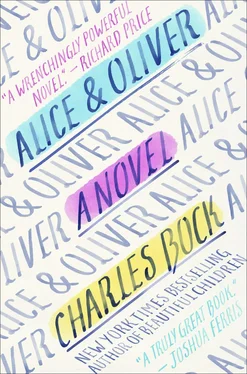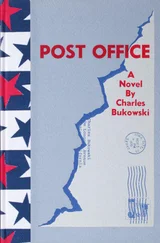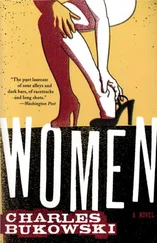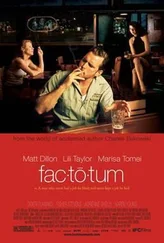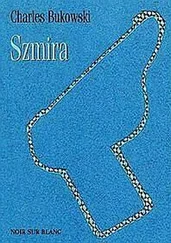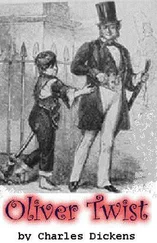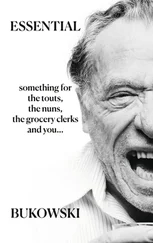Discovering just who you were, refining who you wanted to be, choosing to root that life below Fourteenth, on streets free of franchises, amid a small teeming outpost that stood against the white-bread homogeneity that Reaganism kept jamming down your throat; for Alice, this included an added bonus: sightings — all of the other spectacular one-of-a-kind freaks; club kids coming back from a bodega with some veggie juice while in full night-crawling regalia (hair conically spiked, faces shining with glitter, wearing only high-heeled combat boots and newspaper-made bikinis); dreadlocked girls in geisha robes and corsets of body latex busily hauling bongos from rehearsal. That so many others were making their own explorations — grabbing, discarding, combining, without any kind of map, purposefully throwing away all instructions — excited her. So Alice hosted sushi-rolling parties where her girlfriends chanted rap lyrics; she attended seminars on Transcendental Meditation, staffed a tent that did free Wigstock touch-ups and fixes. Between slurps of borscht from the all-night Polish diner, Alice argued about foreign film with modern dancers, volunteered to sew the costumes for underground theater troupes who had no choice but to be unwatchable. She let herself be drawn in the nude, photographed in bondage gear, doing it for friends, for love, for art, for the hell of it; yes, even that de rigueur, eyeball-bleeding stretch where she fell under the seductive spell of the death of the author. And still kept winding herself in phone cords, despite her hangovers and cotton mouth, trying always to get to the other side of yet another cute, selfish, shitty, unreliable boy. She studied her patterns and color schemes, made skirts gratis for friends, haggled for a secondhand mannequin at the Chelsea Flea Market, used the flimsy dummy to model outfits that she re-created from film stills. She cried and delivered food, both for and with God’s Love, marched and chanted and raged against the police protest barriers with other ACT UP protesters until her hands were frozen and her throat was raw. Alice mourned the gorgeous lanky boy Ginsberg had hit on. She celebrated the man he had been. She was a woman now, indulging, absorbing, borrowing, embracing, pushing against, piecing together.
Now she was here. The fourth floor’s rectangular maze funneled to a dimmed back area. Half-submerged in a worn comfy chair, swimming inside her pink ski hat and punkish sunglasses and pink fuzzy robe, Alice looked like alternative rock royalty, sullen, a bass-playing legend nodded out in her dressing room. A swollen baggie hovered over her, its catsup-thick plasma dripping into her veins. When she saw Oliver pulling at the blue separating curtain, her dormant form animated, a corner of her mouth rising. The arm that was not hooked up welcomed — a weak floppy wave that turned into request, as she reached for the Styrofoam cup.
“You have it,” she managed. “Goodie.”
Mango lassi. Sweet and thick and bubbling with foam, that tangy kick to cap its smoothness. How many times had she ordered it over the years? She couldn’t estimate. You don’t keep track. You sip, taste, feel its kick, appreciate, sip again.
Now a protracted sip left a thin, fizzy mustache. She leaned back into the chair, made a contented sound. Oliver pulled out a Styrofoam container, unveiled some sort of black lentil tandoori mess. He kissed her on the cheek, reported how amazing the puree smelled. After she did her damage, he told her he was going to devour the rest. He plopped down his can of soda, her bottles of water; he started ripping open plasticware.
He was about midway through a just-savory-enough chicken tikka when a voice pretended to knock on the curtain. Eisenstatt ducked sideways, entering almost in segments, slicked coif and head and neck not moving, torso lurching. The doctor took in the food. “That really smells good.”
“Would you like some?” Alice dipped an untouched piece of naan into her sauce. “Or are we in trouble again?”
Eisenstatt stared down at the offered flatbread. His expression contained amusement. “I came by to see how everything was going. Also to chat about parts of your treatment. Having said this, you’re right. I’m not pleased to see what you’re eating.”
“They knew I was going to lunch.” Oliver gestured toward the hallway. “I asked if it was okay to bring food back. I talked to the nurse.”
“She may have figured you meant the cafeteria.”
Alice slurped her straw, purposefully drawing out the sound. “I’m just a sick and weak, blind invalid. But I’m confused, Doctor. Why would anyone choose of their own volition to eat at the hospital cafeteria?”
Eisenstatt refused to give. “My concern is how well cooked the restaurant food might be, and what would come of that.”
“Oh, I can see you think we’re daft.” Humor provided energy; she rode its charge, shifting into Fashion Voice: “Spend your weekend at the urgent care center when you could stay home? Procure food from somewhere besides our lovely hospital cafeteria?” Alice lifted the Styrofoam cup, an imaginary toast. “We’re just a couple of bon vivants. Libertines, is what they call us.”
“If I didn’t give a fuck about her well-being,” Oliver said, “I would have gotten food from the cafeteria.”
“Yes. Very entertaining, as always. But you know the deal: eating has been a problem. We have concerns about your nutrition. Your husband has been asking whether an endoscopy can diagnose if there’s a problem in your stomach.”
“Another whodunit for you to solve,” Alice said, bone dry. “Hurrah.”
“The way this hospital works.” Eisenstatt again refused the bait; his voice and manners remained restrained, even as he gripped the table ledge behind him. “An endoscopy gets scheduled six months in advance. Then your doctor calls and makes an official request to move it, and it gets moved to the same week. We are talking about a serious procedure. If endoscopies were innocuous, I’d say let’s try it. All I am asking: watch what you eat. Please. I’m also writing you a refill for Cthulesta.”
From behind a curtain somebody was laughing at his own joke. A loudspeaker crackled, went silent.
“Cthulesta,” Oliver repeated. “Again?”
“Same routine. Take the nightly shot with a fatty meal. The fat allows the medicine to get digested and be absorbed. With any luck we’ll spur some white blood cell growth, increase production of your neutrophils, decrease odds of fungal infection — all good stuff.”
“Ginseng is an antifungal preventative,” Alice said.
“I don’t know if you knew this,” Oliver said, rubbing his chin, looking down, “but after her first consolidation, the bill for that same prescription was five grand. Our plan only covered fifty percent. Of course insurance denied the claim.”
“Didn’t we submit a form?” Eisenstatt asked.
“After I called two times. Then you got the payment codes backward.”
“With a little luck, this will keep you out of the hospital,” Eisenstatt answered. “That’s what you want. It’s what I want.”
“But you said my numbers are going up? I’m doing so well? Maybe I don’t need it?”
Leaning against the wall behind him, the doctor crossed his right leg in front of his left, putting himself in an odd position, especially considering the man’s bulk. Now he tapped his pen against his opposite arm’s lab jacket sleeve, watching the flick and rebound. In certain moments, he seemed young, reminding Alice of an alone child.
“Logically, what you’re saying is reasonable,” he began. “A normal person recovering conceivably would not be at risk. But it’s normally not someone walking down the street who’s battling leukemia and is likely to get a fungal infection. When you’re neutropenic, or coming out of this state, it’s comparatively common to have fungal pneumonia as a side effect.”
Читать дальше
